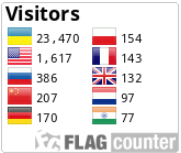INTERCULTURAL EDUCATION TECHNOLOGY OF STUDENTS IN EXTRACURRICULAR WORK BY MEANS OF MUSIC
Keywords:
educational technology, technology, intercultural education technology of studentsAbstract
In the article the intercultural education technology of students in extracurricular work by means of music is highlighted; the essence and basic features of music and educational technology; examples of educational music-teaching technologies are provided; the stages of implementation of educational technology are described. The author analyses the basic principles of intercultural education content selection of means music students in extracurricular work formulated and substantiated the content of education students, which includes two parts: theoretical and practical. The content of the theoretical unit aimed at fostering cultural values and tolerance towards university students to general and music culture of Western Europe (Germany, Austria, Italy, France) and Far East (Mongolia, China, Korea, Japan) based on mastering their theoretical knowledge and skills to identify specific ethnic and typological features music culture of these countries; musical styles and genres, and features of folk and spiritual music, classics, works by contemporary composers each country. A practical content unit of intercultural education of students by means of music in classroom work aimed at fostering intercultural communication skills, identifying specific in the musical culture of different nations, tolerance towards musical culture of other countries during the learning of theoretical material.Downloads
References
Goncharenko, S. (2000). The content of general education and its humanization. Continuing professional education: problems, searches, perspectives. Kyiv: VIPOL.
Yerastova-Myhalus, I. (2016). Formation of intercultural tolerance of future masters of economy: dissertation of the candidate of pedagogical sciences: 13.00.04. Kharkiv.
Maksimova, A. (2016). The phenomenon of transplantation in the system of Japanese artistic creation (on the example of Nagauta’s symphony “Tsurukame”. Bulletin of Kemerovo State University of Culture and Arts, 34, 56-63.
Myzherykov, V. (2004). Dictionary-Directory on pedagogy. Moscow: TTs Sfera.
Nemenskiy, B. (1981). Turning to your mind and heart. Art and School. Moscow: Prosveshcheniye.
Oleksjuk, O. (2006). Music Pedagogy: Study guide. Kyiv: KNUCAA.
Padalka, G. (2010). Pedagogy of Art (Theory and methods of teaching of art disciplines). Kyiv: Osvita Ukrayiny.
Sysoyeva, S. (2011). Integrative technologies of adults’ training: Methods handbook. Kyiv: EKMO.
Stukalenko, Z. (2016). Formation of professional tolerance of a future teacher of music in the course of professional training: dissertation of the candidate of pedagogical sciences: 13.00.04. V. Vynnychenko Kirovograd State Pedagogical University. Kirovograd.
Talyzina, N. (1975). Management of the process of knowledge assimilation. Moscow: Moscow University.
Filts, B. (2005). The program for secondary education institutions. Music art. Grades 5-8. Kyiv-Irpin.
Cherkasov, V. (2014). The theory and methodology of music education. Kirovograd: RVV Kirovograd State V. Vynnychenko University.
Yagoupov, V. (2002). Pedagogy: study guide. Retrieved from http:// eduknigi.com/ped_view.php?id=23












